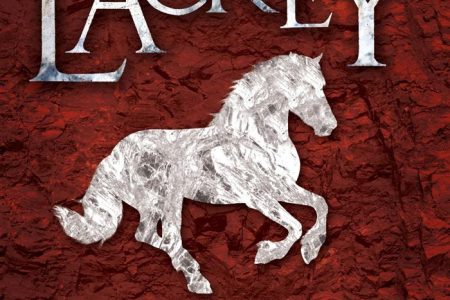I don’t know Mr Setchfield but I am rather jealous of him: he is features editor of SFX magazine, he reviews film and he’s just written a cracking debut novel that mixes espionage with the occult. Talk about living the good life …
The book begins with the motto of the British Secret Intelligence Service: Semper Occultus, ‘Always Secret’. It makes you wonder if you Setchfield got the idea for the novel just from seeing that. The story starts in October 1963 with a great opening: ‘Christopher Winter had never put a bullet in the head of a priest before. The idea felt faintly blasphemous.’ Our protagonist, Winter, is an operative in the SIS who kills people for his government (there are no references to Bond or double-O status, I should hasten to add), and he has been sent to dispatch a priest who is giving away secrets to Russia. However, instead of it being a routine operation like the many times Winter has done before, the priest’s skin ruptures and releases a shoal of insects and then bursts into flame after Winter shoots him in the head, and then he passes a man whose face looked almost like the face of his echo man but which then changes like water into the face of a stranger. In other words, not a normal day. And Winter’s life changes for ever from that evening on …
The success of a story that mashes together two genres stems from the verisimilitude of the setting, particularly when adding a fantastical element into a genre that is mostly set in the real world. Setchfield does a great job of basing this tale in a believable, tangible world; the choice of placing the narrative in the past helps in this regard, and his prose style and descriptive abilities capture the tone and sense of time perfectly. In typical cold war spy stories, there is plenty of visiting other countries and Setchfield really puts London and Vienna and Berlin and Bavaria from the 1960s on the page.
The adventure zips along nicely, with nice details to enrich and dialogue and prose with a lovely turn of phrase – when Malcolm Hands, Winter’s mentor in SIS, first mentions ‘the war in the dark’ that is the real secret war fought for millennia behind the wars that happened, he describes the combination of genres in a perfectly apposite manner: ‘There’s not really that much difference between spycraft and magecraft, you know. It’s all symbols and enchantments. Crack a code, cast a spell.’ When one of the occult events is happening, there is mention of ‘lords of the hollow spaces … kings of bone and dust … queens of the buried.’ There is the Order of the Leaves, the Language of Fire, Sir Edward Kelly who was scryer and colleague of Sir John Dee; little things like that really make a book.
The plot has auctioning of secrets (which are not ordinary intelligence but runes to something more powerful) and the mystery of Winter’s past and a beautiful, lethal female Russian agent and capture and escape and intrigue and close escapes on trains. But there is also the occult aspect slowly creeping into the book, including very occasional chapters about a man called Mr Hart who seems to have magical abilities and works for SIS as well. In fact, about the only aspect of the book that I thought didn’t completely cohere is that Winter is exposed to vast amounts of the occult but doesn’t seem to believe it until the end, and he gets pushed and pulled along the adventure like a pinball but with little agency of his own. Everything seems to happen to him despite his presence. It can feel a little frustrating that the protagonist is someone just following along instead of making decisions about his own journey. It also means that the occult threat that is behind everything turns up very late, and the enormity of it seems to come out of nowhere.
The aspect that allows the reader to overlook a minor foible is the storytelling itself – Setchfield has a narrative style that works for this story, which balances the two sides perfectly and tells the story in the most appropriate fashion. It rattles along, dragging you along for the ride. The highest compliment I can give is that the books feels a little like if Neil Gaiman had decided to write a James Bond-style story mixed with the various fantasy elements that he loves. I thoroughly enjoyed reading The War In The Dark and look forward to reading more from Setchfield in the future, while probably getting more jealous with each book.
Disclosure: this book was provided for review purposes.




